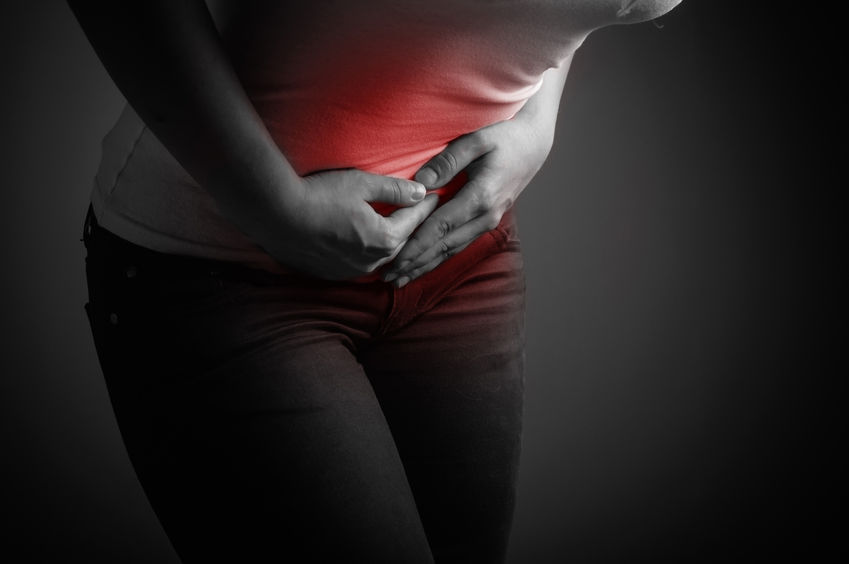Need Help?
We are here to help.
We care for each one who come to us with hope in their hearts.


Endometriosis is a gynaecological condition in which uterine lining tissue grows outside the uterus in places like ovaries, fallopian tubes, pelvic cavity and sometimes in intestines, bladder, scar tissues etc.
This condition occurs in adolescents and in women aged between 15 to 44 years. In every menstrual cycle the uterine lining breaks down and bleeds outside the uterus and gets trapped, leading to painful lumps, cysts and chunks of big masses which stick together and cause discomfort.
Uterus lining tissue is superficially present on the surface of organs.
Uterine lining tissue is present inside the ovary which forms chocolate cyst.
Uterus lining tissue invades the organs either within or outside the pelvic cavity. It forms lumps and masses which stick together, resulting in a frozen pelvis.
Other signs and symptoms include fatigue, diarrhoea, constipation, bloating or nausea, and rectal bleeding, especially during menstrual periods.
Endometriosis affects the egg quality when present in ovaries. It causes tubal block by distorting the anatomy of the pelvis or by making tubo-ovarian masses. In addition, it alters the functioning of the immune system and impairs implantation for successful pregnancy. The exact reason is unknown, however here are some potential causes of Endometriosis includes genetics, poor lifestyle habits, smoking, alcohol consumption, improper intake of medication, from past surgeries etc.

Endometriosis can be diagnosed by ultrasound, MRI pelvis and laparoscopy. Laparoscopy gives the confirmed diagnosis of endometriosis and informs about the amount, location and depth of endometriosis and gives a score. The score determines if the endometriosis is minimal (Stage 1), mild (Stage 2), moderate (Stage 3), or severe (Stage 4) and correlates with pregnancy success rate.
Women with severe (Stage 4) endometriosis experience scarring, blocked fallopian tubes and damaged ovaries in which advanced fertility treatment is required.
There is no cure of endometriosis. However, a symptomatic treatment for the same exists which depends on age and overall health. Treatment modalities include medicine, surgery or both.
Treatment of endometriosis depends on presence or absence of pain symptoms, patient age and preferences, history of previous surgery, presence of other infertility factors, ovarian reserve, and estimated Endometriosis Fertility Index (EFI) score.
In stage 1 and 2, as tubal function is maintained and if age is young with no other infertility factor, then controlled ovarian stimulation (medications for egg formation) with natural try or intrauterine insemination (IUI) can be tried for 3 to 6 months.
Hormonal suppression in the form of GnRH agonist should be given prior to IVF. Long protocol egg stimulation should be recommended if endometrial cyst size is greater than 4 cm, laparoscopic cystectomy should be done before IVF to improve endometriosis-associated pain or the accessibility of follicles.
Symptoms of endometriosis often become apparent several years after a woman begins menstruating. While pregnancy might alleviate these symptoms, there’s always a possibility of their recurrence. Additionally, the onset of menopause can bring about a reduction in pain, but this can vary if oestrogen therapy is part of the treatment.
It’s important to note that the exact causes of endometriosis remain unclear. That said, recent research efforts have identified a number of potential causes:
This occurs when menstrual blood doesn’t flow out of the body. Instead, it goes back into the fallopian tubes and enters the pelvic cavity. As a result, the endometrial cells in the blood stick to the pelvic walls and organs to grow and thicken over time and bleed every menstrual cycle.
Oestrogen and other hormones can make embryonic cells evolve into endometrial-like cell growths throughout puberty.
Experts found that immune factors or hormones might also transform the cells lining the abdomen’s inner side. This phenomenon results in cells similar to those lining the uterine wall.
Endometrial cells can attach to scar tissue after surgery to the stomach or a C-section.
Women with immunity issues have white blood cells that attack and destroy endometrial tissue.
When this happens, the tissue fluid system or blood vessels move the endometrial cells to other body parts.
We recommend timely treatment of endometriosis to minimise the condition’s impact on your fertility. Otherwise, you may be at risk of the following:
Additionally, any reproductive tract condition or health issue that prevents blood from properly exiting the body during menstruation can be a risk factor for endometriosis.
Endometriosis primarily leads to challenges with fertility. Up to 50% of individuals with this condition experience difficulty in conceiving. However, it’s important to note that women with mild to moderate endometriosis can still become pregnant and have a full-term pregnancy. Given that endometriosis can progress over time, it’s advisable for those with the condition to consider not postponing pregnancy.
Furthermore, while endometriosis does elevate the risk of ovarian cancer in some women, the overall lifetime risk is relatively low.
Treatment of endometriosis is typically aimed at relieving the symptoms. At Advance Fertility, our doctors offer treatments to improve fertility and reduce pain. Surgery is often recommended for treating mild endometriosis and may help increase fertility. For pain relief, a doctor may recommend safe pain relievers, hormonal treatments to suppress the menstrual cycle or laparoscopy.
Endometriosis and pain go hand in hand, so it becomes important to prevent this condition. While its exact cause remains unclear, there are a few means to help reduce the risk of developing the condition:
If you suspect endometriosis due to symptoms like pelvic pain, heavy menstrual bleeding, or pain during intercourse, seek prompt medical evaluation. Early diagnosis and treatment can help manage the condition more effectively.
Maintaining a healthy body weight and incorporating regular physical activity into your routine may reduce your risk. Obesity can be linked to hormonal imbalances that may exacerbate endometriosis.
Consuming a diet rich in fruits, vegetables, whole grains, and lean proteins can help support hormonal balance. Limiting red meat and high-fat dairy products might be beneficial.
Excessive alcohol and caffeine consumption can disrupt hormone levels, potentially aggravating endometriosis symptoms. Moderation is key.
Consider using sanitary products, such as tampons and pads that are free from harsh chemicals to minimise the risk of menstrual disorders that could potentially lead to endometriosis.
Some studies suggest that the use of birth control pills can reduce the risk of endometriosis. Consult with your healthcare provider about this as a prevention strategy.
While not a guaranteed prevention method, women who have had pregnancies, particularly at a younger age, and have breastfed may have a lower risk of developing endometriosis.
Endometriosis occurs when tissue similar to the lining of the uterus grows outside the uterus. Immune system dysfunction, retrograde menstruation, and genetic predisposition are some possible causes, though the precise cause is unknown.
The diagnosis of Endometriosis at Advance Fertility involves a thorough evaluation, including a detailed medical history, pelvic exams, imaging studies, and sometimes laparoscopic surgery. Our specialists can precisely diagnose the degree and severity of endometriosis thanks to this thorough approach.
Yes, Endometriosis can impact fertility by causing inflammation, scarring, and adhesions in the pelvic organs. These elements may impair the reproductive system’s regular operation, influencing sperm motility, egg release, and embryo implantation and making conception difficult.
Laparoscopic surgery is a key component of Endometriosis treatment at Advance Fertility. It allows our skilled surgeons to visualise and remove endometrial tissue, adhesions, and cysts, providing relief from symptoms and improving fertility prospects.
Endometriosis can cause irregular menstrual cycles, pelvic pain, and heavy periods. Treatment options at Advance Fertility may include pain management, hormonal therapies, and surgical interventions to alleviate symptoms and enhance fertility.
We care for each one who come to us with hope in their hearts.

Disclaimer – Dr Kaberi is not associated with any Hosptial/Clinic other than “Advanced Fertility and Gyne Center (AFGC)”. AFGC has only four centers at present 1. “Lajpat Nagar” 2. “CR Park Delhi” 3. “Noida” 4. “Gurgaon“.